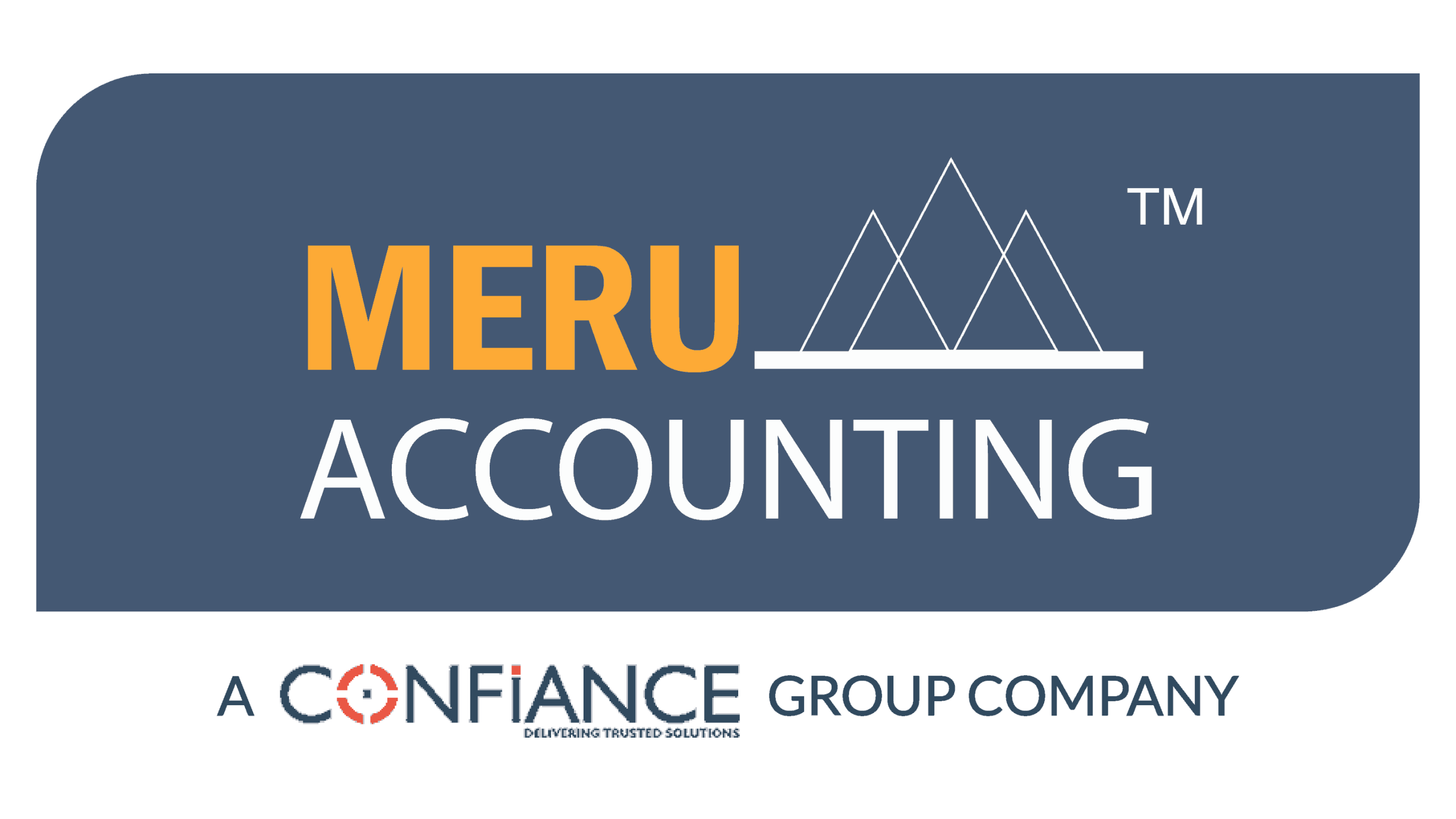Home » Wave » Accounting & Bookkeeping » A Guide to Calculating and Paying Payroll Taxes in Simple Steps
Calculating and Paying Payroll Taxes
Sustaining tax law compliance and guaranteeing seamless corporate operations depend on efficient payroll tax administration. Because payroll systems are complex and rules are always changing, it can be difficult for business owners to calculate and pay . Let’s explore different types of payroll taxes, their essential components, how they are calculated, and the best ways to ensure correct payments. Meru Accounting’s professional services can make payroll tax management easier.
Understanding Payroll Taxes
Employers are required to compute, withhold, and pay payroll taxes on behalf of their workers. Important programs like Social Security, Medicare, and unemployment insurance are funded in part by these levies. Calculating and paying payroll taxes must be done correctly to guarantee adherence to laws and safeguard companies against fines and legal problems.
The Importance of Calculating Payroll Taxes
Calculating payroll taxes accurately are essential for a number of reasons:
- Compliance: When it comes to payroll taxes, employers are required to follow both federal and state laws. Heavy fines and legal ramifications may follow noncompliance.
- Financial Planning: Precise computations assist companies in efficiently allocating funds for payroll costs, guaranteeing they have the money to fulfill their commitments.
- Employee happiness: Accurate payroll tax calculations guarantee that workers receive their right net pay, which promotes employee happiness and trust.
A Guide to Calculating and Paying Payroll Taxes in Simple Steps
Effective payroll management is a crucial aspect of running a successful business. To ensure your employees are compensated accurately and your company complies with tax regulations, it’s essential to understand how to calculate and pay payroll taxes. Let’s break down the process into simple steps, with a focus on using payroll management services and outsourcing payroll services to simplify your operations.
1. Understanding Payroll Taxes
Before diving into the steps, let’s understand the basics of payroll taxes.
Payroll taxes are mandatory contributions deducted from employees’ wages and matched by employers. These taxes are used for funding different government programs, like Social Security, Unemployment insurance, and Medicare.
2. Gathering Necessary Information
To calculate and pay payroll taxes accurately, you’ll need to gather the following information:
Employee Data:
- Names
- Social Security Numbers
- Tax Withholding Forms (W-4)
- Employer Data:
- Federal Employer Identification Number (FEIN)
- State Employer Identification Number (if applicable)
Payroll Records:
- Hours worked
- Employee salaries or wages
- Deductions (e.g., health insurance, retirement contributions)
3. Calculate Gross Pay
To determine the amount subject to payroll taxes, calculate the gross pay for each employee. Gross pay includes regular wages, overtime, and any bonuses or commissions.
4. Calculate Employee Deductions
Next, calculate employee deductions, such as federal income tax, Social Security, and Medicare. Use the IRS withholding tables or an automated payroll management service to ensure accuracy.
5. Calculate Employer Contributions
Employers are responsible for contributing their share of Social Security and Medicare taxes, as well as any state-specific taxes. Calculate these amounts based on employee earnings.
6. Prepare Payroll Tax Forms
Complete the necessary tax forms, including:
- Form 941 (Quarterly Federal Tax Return)
- Form 940 (Federal Unemployment Tax Return)
- State-specific tax forms (if applicable)
7. Deposit Payroll Taxes
Submit your payroll tax deposits according to the schedule provided by the IRS and your state tax agency. Many businesses choose to outsource payroll services to ensure timely and accurate deposits.
8. File Quarterly and Annual Reports
Every quarter, file Form 941 to report federal taxes and any state-specific forms required by your jurisdiction. Annually, file Form 940 for federal unemployment tax and provide employees with Form W-2.
9. Stay Informed and Compliant
Tax laws and regulations change regularly. It’s crucial to stay informed about any updates that may affect your payroll tax obligations. Consider utilizing payroll management services that keep up with these changes and adjust your payroll accordingly.
10. Consider Outsourcing Payroll Services
Managing payroll can be complex and time-consuming. Many businesses opt to outsource payroll services to professional firms. Choosing a reputed firm like Meru Accounting can help you simplify payroll management. Outsourcing offers several advantages, including:
- Accuracy: Payroll experts ensure precise calculations and compliance with tax laws.
- Time Savings: Allows you to have free time to focus on key business aspects.
- Cost Efficiency: Avoid penalties and fines associated with payroll tax errors.
- Compliance: Stay up-to-date with ever-changing tax regulations.
- Security: Protect sensitive employee data with secure payroll systems.

Why Payroll Tax Outsourcing Is a Wise Decision?
Payroll tax management is increasingly being outsourced to specialized agencies by several businesses. Among the advantages of outsourcing are:
1. Expertise:
- Experts that are knowledgeable about the constantly evolving payroll and tax laws work for specialized payroll services. They help firms avoid expensive penalties by ensuring compliance with local, state, and federal tax regulations. These experts can effectively manage intricate computations, filings, and updates thanks to their expertise, giving firms peace of mind regarding their tax administration procedures.
2. Savings:
- By removing the requirement for a specialized in-house payroll team, outsourcing payroll tax administration lowers workforce costs like wages, benefits, and training expenditures. Companies might also avoid spending a lot of money on payroll systems and software. Businesses can achieve considerable cost savings without sacrificing service quality by utilizing the resources and capabilities of an outsourcing firm.
3. Accuracy:
- Errors in payroll taxes may result in fines, audits, and unhappy workers. By depending on experts who are qualified to manage payroll complexities, outsourcing lowers the possibility of errors. They reduce the possibility of mistakes and guarantee the company’s financial stability by assuring accurate computations, accurate tax withholdings, and timely filings.
4. Time Efficiency:
- It takes a lot of work and ongoing attention to detail to manage payroll taxes. Business owners can concentrate their time and efforts on important functions like customer satisfaction and growth by outsourcing this service. Regular payroll duties are managed by agencies, allowing business owners to focus on strategic issues.
5. Stress-Free Tax Management for SMEs:
- Small and medium-sized enterprises often operate with limited resources and find it challenging to navigate the complexities of payroll taxes. Outsourcing makes calculating and paying payroll taxes stress-free, as agencies provide end-to-end solutions, from compliance to reporting. This allows SMEs to focus on growth without worrying about the intricacies of tax management.
Why Choose Meru Accounting?
- Knowledge of Payroll Taxes: Our staff is current on the most recent tax laws.
- Technology-Driven Solutions: To ensure smooth payroll administration, we employ cutting-edge software.
- Customized Services: Solutions made specifically to fit your company’s particular requirements.
- Cost-effectiveness: Reasonably priced without sacrificing quality.
- Global Experience: Assisting companies in various sectors and regions.
You can ensure compliance and peace of mind by working with Meru Accounting to simplify calculating and paying payroll taxes.
Services we offer for Payroll Taxes
- Payroll Processing: To guarantee precise computations of gross wages, deductions, and payroll taxes, Meru Accounting provides full payroll processing services.
- Tax Compliance: To make sure your company complies with all federal and state payroll tax responsibilities, the firm stays updated with evolving tax laws and regulations.
- Information Services: To help businesses better understand their financial responsibilities, Meru Accounting offers comprehensive information on payroll costs and tax liabilities.
- Consultation Services: To help companies in resolving certain issues pertaining to payroll tax calculation and payment, their staff can provide tailored consultations.
- Software Solutions: To cut down on errors and save time, Meru Accounting uses sophisticated accounting software that automates a large portion of the payroll process.
Businesses can speed up calculating and paying payroll taxes by collaborating with Meru Accounting while ensuring compliance with all applicable laws.
Conclusion
Calculating and paying payroll taxes are an essential part of managing a business, but they don’t have to be difficult. Businesses can effectively handle payroll taxes by comprehending their tax responsibilities, utilizing technology, and implementing best practices.
Meru Accounting provides a wide range of payroll tax services that guarantee accuracy, compliance, and efficiency for those seeking professional help. Regardless of the size of your company, our customized solutions can make it easier for you to handle the complexities of payroll taxes.
Make calculating and paying payroll taxes a smooth aspect of your company’s operations by partnering with Meru Accounting. To find out how we can help with your payroll requirements and advance your company, get in touch with us right now!
FAQs
- What are payroll taxes?
Ans: Payroll taxes are mandatory contributions deducted from employees’ wages and matched by employers to fund government programs like Social Security, Medicare, and unemployment insurance.
- Why is accurate payroll tax calculation important?
Ans: It ensures compliance with laws, aids in financial planning, and promotes employee satisfaction by ensuring correct net pay.
- What information is needed to calculate payroll taxes?
Ans: You need employee data (e.g., names, Social Security numbers), employer data (e.g., FEIN), and payroll records (e.g., hours worked, salaries).
- How do you calculate gross pay?
Ans: Gross pay is calculated by adding regular wages, overtime, and any bonuses or commissions earned by the employee.
- What deductions are included in payroll taxes?
Ans: Deductions include federal income tax, Social Security, and Medicare, among others, depending on the jurisdiction.
- What forms are necessary for payroll tax filing?
Ans: Forms include Form 941 (Quarterly Federal Tax Return), Form 940 (Federal Unemployment Tax Return), and any state-specific tax forms.
- How often should payroll taxes be deposited?
Ans: Payroll taxes must be deposited according to the schedule provided by the IRS and state tax agencies, often semi-weekly or monthly.
- What are the benefits of outsourcing payroll services?
Ans: Outsourcing offers accuracy, time savings, cost efficiency, compliance, and security in payroll management.
- How does Meru Accounting help with payroll taxes?
Ans: Meru Accounting provides comprehensive payroll processing, tax compliance, information services, consultation, and software solutions to simplify payroll tax management.
- Why choose Meru Accounting for payroll tax services?
Ans: Meru Accounting offers expert knowledge, technology-driven solutions, customized services, cost-effectiveness, and global experience.








